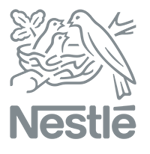Separation Science, in collaboration with Thermo Fisher Scientific, brings you an on-demand webinar focusing on how Nestlé are approaching the analytical issues surrounding food fraud and authenticity.
Duration: Approximately 35 minutes
Speakers:![]() Luis Hernandez
Luis Hernandez
Senior Quality Manager, Nestlé
![]() Geoffrey Cottenet
Geoffrey Cottenet
Senior Scientist, Nestlé
Sponsors:

 このウェビナーのプレゼンテーションを日本語のキャプション付きでご覧いただけます。
このウェビナーのプレゼンテーションを日本語のキャプション付きでご覧いただけます。
 向专家学习,并观看这个带中文字幕的网络研讨会演示。
向专家学习,并观看这个带中文字幕的网络研讨会演示。
 전문가들로부터 배우고 한국어로 된 자막이있는 웹 세미나 프레젠테이션을보십시오.
전문가들로부터 배우고 한국어로 된 자막이있는 웹 세미나 프레젠테이션을보십시오.
